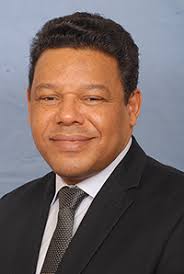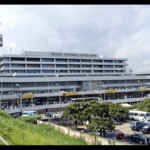
Aviation experts have called on the African Civil Aviation Commission (AFCAC) and civil aviation authorities of all the countries in the region to harmonise their regulatory framework to ensure uniform minimum safety standard in Africa. The measure, they said, will prevent air accidents that have characterise the continent.
They noted however that in the last three years the region has recorded very high safety record but has remained still the continent with the highest rate of accidents in the world.
The experts who gathered together at the 27th African Aviation Maintenance Repair Overhaul (MRO) Conference in Cairo from March 18-20, 2018, noted that with such harmonization the recent Single African Air Transport Market (SAATM) treaty that was ratified by 23 countries in the region would be a reality, as every airline in the continent would maintain the same minimum safety standard in accordance with the International Civil Aviation Organisation (ICAO) standard and recommended practices.
The convener of the conference and the CEO of African Aviation Services who is also the former Secretary-General of African Airlines Association (AFRAA), Nick Fadugba said that AFCAC plays critical role in regulating airline operation in Africa but the region needs standardisation of regulation in the region.
“We need harmonised, standardised framework for regulation in Africa and we need it urgently,” Fadugba said.
He noted that that Africans have to work together to take back the passenger traffic market that has been dominated by international carriers.
“To achieve the goals of SAATM, the African airline industry perhaps more than ever needs to focus on all aspects of air safety, especially ensuring well-maintained aircraft fleet and a well-trained aviation workforce throughout the continent,” Fadugba said.

He regretted that African airlines are facing a lot of challenges, noting that about 27 years ago African airlines had 60 per cent of the region’s market but today the airlines have lost substantial part of the market and only controls 18 per cent.
The CEO of Aero Contractors, Captain Ado Sanusi said at the conference that Europe was able to maintain high standard of air safety because the region harmonised regulation framework with minimum acceptable standard, which no country would go below and the result is significant improvement in safety and low air accident, which according to records is one of the lowest in the world.
Sanusi noted that if Africa adopts the same policy it would help the continent achieve high standard of safety and part of the gain is that lessors, aircraft manufacturers and insurance companies would stop seeing the African environment as harsh for airline operation, which upped insurance premium paid by African airlines.
“It worked in Europe. They have common regulatory framework in Europe and I think it can work in Africa. If we can have harmonised regulatory framework in Africa each country will have specifics as it wants but there will be acceptable level of standard in the entire continent, but each country will have its own peculiar regulations using the harmonised framework as standard. So each state can impose a stricter regulation but cannot go below the regional standard,” Sanusi said.
The Secretary General of African Airlines Association, AbderahmaneBerthe, said African airlines should work together with common interest and objectives so that they would be able to achieve more in terms of safety, expanded market and increased capacity.
He called for greater commitment for Yamoussoukro Decision, which would boost the region’s economy, expand capacity for more aircraft, which Airbus projected that in the next few years Africa would demand 1170 new aircraft.
Boeing’s Current Market Outlook for 2016-35 also projects that air traffic to, from and within Africa is expected to grow at about 6.1 per cent annually over the next 20 years as technology increases fuel efficiency, opening up new international routes that were previously not possible.
Fadugba however, noted that increase in aircraft capacity would need more maintenance facilities in the region and the easiest way to achieve this is cooperation between major MRO operators and the emerging ones in the continent.
“Developing MRO facilities and capabilities in Africa is necessary in order to enhance safety, develop a skilled workforce and preserve scarce foreign exchange,” Fadugba said.
THISDAY






